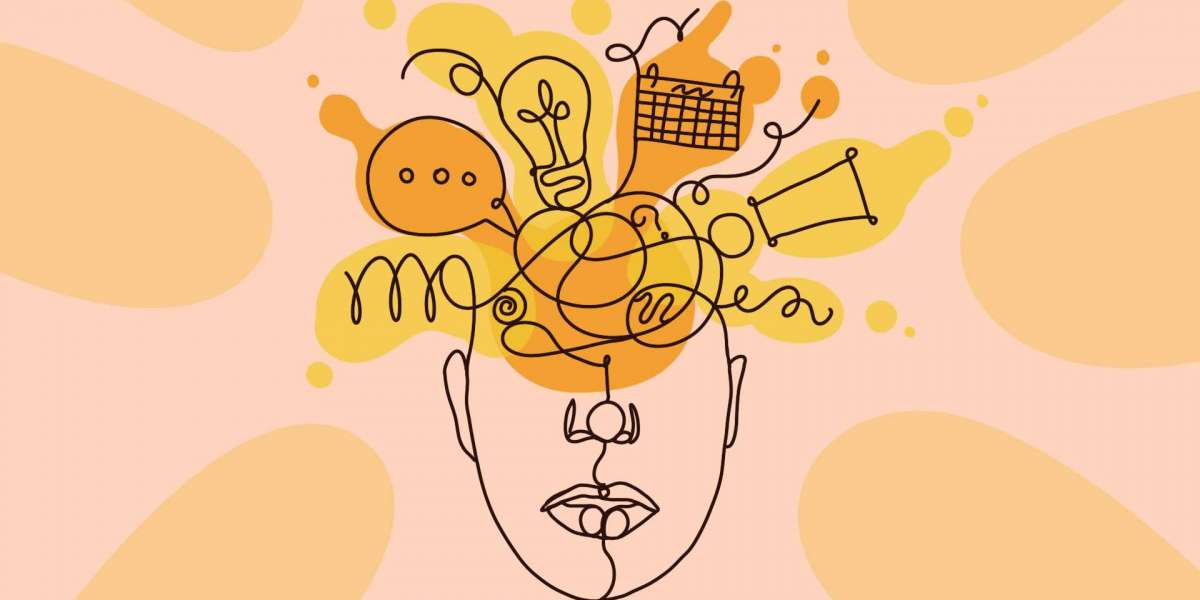Decision-making can be particularly challenging for individuals with Attention Deficit Hyperactivity Disorder (ADHD). The symptoms of ADHD—such as impulsivity, inattention, and difficulties with executive functioning—can complicate the process of making thoughtful and informed choices. However, with the right strategies and tools, individuals with ADHD can improve their decision-making skills and make better choices in various aspects of their lives. This article explores effective strategies for enhancing decision-making abilities and managing the challenges associated with ADHD.
Understanding ADHD and Decision-Making
ADHD is a neurodevelopmental disorder characterized by symptoms of inattention, hyperactivity, and impulsivity. These symptoms can significantly impact decision-making processes in several ways:
Impulsivity:
Impulsive behavior can lead to hasty decisions without considering long-term consequences. Individuals with ADHD symptoms may act on immediate desires or emotions, resulting in regrettable choices.
Inattention:
Difficulty maintaining focus can make it challenging to gather and process relevant information needed for making informed decisions. This can lead to poor judgment or incomplete analysis.
Executive Functioning Deficits:
Executive functions such as planning, organizing, and prioritizing are often impaired in individuals with ADHD. These deficits can affect the ability to evaluate options and foresee potential outcomes.
Understanding these challenges is essential for developing strategies to improve decision-making skills and make more deliberate and effective choices.
Strategies for Better Decision-Making
1. Develop a Structured Decision-Making Process
A structured approach to decision-making can help individuals with ADHD systematically evaluate options and make more informed choices.
Define the Decision:
Clearly identify the decision that needs to be made. Articulate the specific problem or choice at hand to ensure that you are focusing on the right issue.
Gather Information:
Collect relevant information and data related to the decision. Make a list of facts, options, and potential consequences to inform your choice.
Evaluate Options:
Assess the pros and cons of each option. Consider how each choice aligns with your goals, values, and priorities.
Make a Decision:
Based on your evaluation, choose the option that best meets your needs and objectives. Trust your analysis and make the decision with confidence.
Review and Reflect:
After making the decision, review the outcome and reflect on the process. Assess whether the decision achieved the desired results and identify any lessons learned.
2. Use Decision-Making Tools and Techniques
Incorporating decision-making tools and techniques can aid in organizing thoughts and analyzing options effectively.
Decision Matrix:
Use a decision matrix to evaluate options based on specific criteria. Assign scores or weights to different factors and use the matrix to compare and rank options objectively.
Pros and Cons List:
Create a pros and cons list for each option. This simple tool helps visualize the benefits and drawbacks of each choice, making it easier to compare and decide.
Cost-Benefit Analysis:
Conduct a cost-benefit analysis to weigh the potential costs and benefits of each option. This technique helps assess the overall value of each choice and make a more informed decision.
3. Implement Time Management Techniques
Effective time management can help individuals with ADHD allocate sufficient time for decision-making and avoid hasty choices.
Set Time Limits:
Establish time limits for making decisions to prevent procrastination and ensure that you allocate enough time for thoughtful consideration. Use timers or alarms to stay on track.
Break Decisions into Steps:
Divide complex decisions into smaller, manageable steps. Address each step one at a time to maintain focus and prevent overwhelm.
Schedule Decision-Making Sessions:
Set aside dedicated time blocks for decision-making. Avoid making decisions in the heat of the moment and instead, choose a time when you can think clearly and calmly.
4. Seek Input and Advice
Consulting others can provide valuable perspectives and insights that enhance decision-making.
Ask for Feedback:
Seek input from trusted friends, family members, or colleagues who can offer objective feedback and alternative viewpoints. Their insights can help you evaluate options more comprehensively.
Consult Experts:
For specialized decisions, consult experts or professionals who have expertise in the relevant area. Their knowledge can provide valuable guidance and help you make more informed choices.
Join Support Groups:
Participate in support groups or forums related to ADHD. Sharing experiences and discussing decision-making strategies with others who have similar challenges can offer new perspectives and practical advice.
5. Practice Mindfulness and Emotional Regulation
Mindfulness and emotional regulation techniques can help manage impulsivity and improve decision-making.
Practice Mindfulness:
Engage in mindfulness practices, such as meditation or deep breathing exercises, to increase self-awareness and improve focus. Mindfulness can help you stay present and make more deliberate decisions.
Regulate Emotions:
Learn techniques for managing emotions and reducing stress. Emotional regulation strategies, such as journaling or talking with a therapist, can help you make decisions from a place of calm rather than emotional reactivity.
6. Develop and Follow Personal Decision-Making Guidelines
Establishing personal guidelines for decision-making can provide a consistent framework for making choices.
Create Decision-Making Rules:
Develop a set of personal rules or guidelines for making decisions. For example, you might decide to always seek input from a trusted friend before making a significant choice or to use a specific decision-making tool for complex decisions.
Document Your Process:
Keep a record of your decision-making process and outcomes. Documenting your decisions and their results can help you identify patterns, learn from past experiences, and refine your decision-making approach.
7. Addressing Common Decision-Making Pitfalls
Recognizing and addressing common pitfalls can help improve decision-making outcomes.
Avoid Decision Fatigue:
Decision fatigue can occur when faced with too many choices or decisions in a short period. Minimize decision fatigue by simplifying choices, prioritizing decisions, and taking breaks when needed.
Manage Perfectionism:
Perfectionism can lead to overthinking and procrastination. Recognize that no decision is perfect and focus on making the best choice based on the available information.
Handle Regret Constructively:
If a decision does not turn out as expected, approach regret constructively. Reflect on what can be learned from the experience and use it to inform future decisions.
8. Build Decision-Making Skills Through Practice
Developing decision-making skills requires practice and experience.
Start with Small Decisions:
Practice making small, low-stakes decisions to build confidence and improve decision-making skills. Gradually progress to more complex decisions as you gain experience.
Reflect on Past Decisions:
Regularly review and reflect on past decisions to identify what worked well and what could be improved. Use these reflections to enhance your decision-making process.
Collaborating with Professionals
1. Work with a Therapist or Coach
Professional support can provide valuable guidance and strategies for improving decision-making skills.
Seek Therapy:
Cognitive-behavioral therapy (CBT) or other therapeutic approaches can help address impulsivity, inattention, and executive functioning deficits. A therapist can work with you to develop coping strategies and improve decision-making abilities.
Hire a Coach:
Consider working with a coach who specializes in ADHD. A coach can provide practical advice, accountability, and support in developing effective decision-making skills.
2. Engage in Educational Programs
Educational programs and workshops can offer additional tools and strategies for decision-making.
Attend Workshops:
Participate in workshops or training programs focused on decision-making and ADHD management. These programs can provide practical tools and techniques for enhancing decision-making skills.
Explore Online Resources:
Utilize online resources, such as courses or webinars, to learn more about decision-making strategies and ADHD management. Online resources can offer flexible and accessible learning opportunities.
Conclusion
Decision-making can be particularly challenging for individuals with ADHD due to symptoms of impulsivity, inattention, and executive functioning deficits. However, by implementing structured decision-making processes, utilizing decision-making tools, managing time effectively, seeking input and advice, and practicing mindfulness, individuals with ADHD can enhance their decision-making skills and make better choices. Developing personal guidelines, addressing common pitfalls, and building decision-making skills through practice can further improve decision-making outcomes. Collaborating with professionals and engaging in educational programs can provide additional support and resources. With the right strategies and tools, individuals with ADHD can navigate decision-making challenges and make thoughtful, informed choices in various aspects of their lives.









